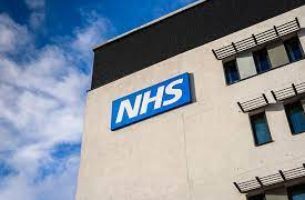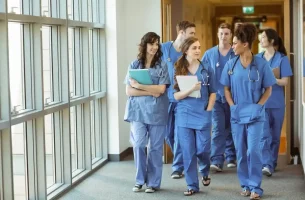What are 5 pros and 5 cons of the NHS? The UK’s NHS is a socialised healthcare system, and was one of the first in the world, when it started in 1948. It certainly has strengths. We will now describe 5 of its most commendable features. 5 Pros of the NHS 1. Universal access to […]
Read MoreAn example of a good medical history There are 10 stages to a good medical history. Here goes. Mr. MyHSN. 52 years. Accountant. 1. PC Chest pain for 1 month. 2. HPC Mr. MyHSN is a 52 year old accountant with hypercholesterolaemia, hypertension and polycythaemia rubra vera (PRV) who has been in relatively good health, […]
Read MoreWorking in neurology: 5 Pros and 5 Cons Neurology is not for everyone. Here goes. 5 Pros – why should I work in neurology? The hours are largely social. As a consultant you will not often be working at night, weekends, and bank holidays. Some consultants will be on an oncall rota, but this is usually just for […]
Read MoreWorking in respiratory medicine: 5 Pros and 5 Cons Respiratory medicine is not for everyone. Here goes. 5 Pros – why should I work in respiratory medicine? Practice general medicine. There are great first hand learning opportunities as patients with asthma/COPD, PE, lung cancer and pulmonary fibrosis, often have other cardiac and problems. There is […]
Read MoreWorking in dermatology: 5 Pros and 5 Cons Dermatology is not for everyone. Here goes. 5 Pros – why should I work in dermatology The hours are largely social. As a consultant you will not often be working at night, weekends, and bank holidays. Some consultants will be on an oncall rota, but this is usually just […]
Read MoreWorking in cardiology: 5 Pros and 5 Cons Cardiology is not for everyone. Here goes. 5 Pros – why should I work in cardiology Practice general medicine. There are great first hand learning opportunities as patients with IHD, CCF and rhythm problems, usually have other endocrine (especially diabetic) and kidney problems (especially CKD). There is […]
Read MoreWorking in gastroenterology: 5 Pros and 5 Cons Gastroenterology is not for everyone. Here goes. 5 Pros – why should I work in gastroenterology Practice general medicine. There are great first hand learning opportunities as patients with inflammatory bowel disease and liver diseases, usually have other endocrine (especially diabetic) and abdominal surgical problems. There is […]
Read More10 key skills you need as a doctor As a doctor, you’re responsible for healing people and potentially saving their lives. To succeed in this profession, you need plenty of medical knowledge and skills. But this, unfortunately, is not enough. Apart from your professional qualifications, you also need certain abilities to perform your duties effectively. […]
Read MoreWorking in haematology: 5 Pros and 5 Cons Haematology is not for everyone. Here goes. 5 Pros – why should I work in nephrology Practice general medicine. There are great first hand learning opportunities as patients with haematological disease usually have cardiac, kidney and other problems. And you a chance to get your hands dirty […]
Read MoreWorking in nephrology: 5 Pros and 5 Cons Nephrology is not for everyone. Here goes. 5 Pros – why should I work in nephrology Practice general medicine. There are great first hand learning opportunities as patients with CKD and ERSF usually have other cardiac, endocrine (especially diabetic) and vascular surgical problems. And you get a […]
Read More




